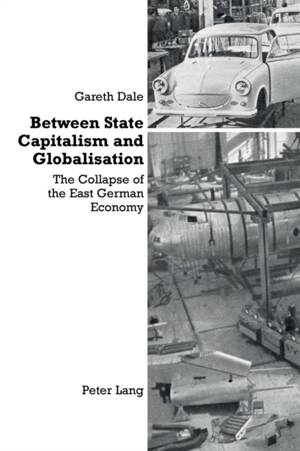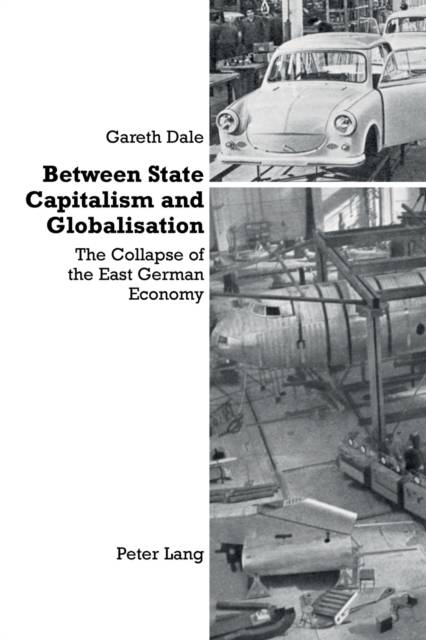
Bedankt voor het vertrouwen het afgelopen jaar! Om jou te bedanken bieden we GRATIS verzending (in België) aan op alles gedurende de hele maand januari.
- Afhalen na 1 uur in een winkel met voorraad
- In januari gratis thuislevering in België
- Ruim aanbod met 7 miljoen producten
Bedankt voor het vertrouwen het afgelopen jaar! Om jou te bedanken bieden we GRATIS verzending (in België) aan op alles gedurende de hele maand januari.
- Afhalen na 1 uur in een winkel met voorraad
- In januari gratis thuislevering in België
- Ruim aanbod met 7 miljoen producten
Zoeken
Between State Capitalism and Globalisation
The Collapse of the East German Economy
Gareth Dale
Paperback | Engels
€ 187,45
+ 374 punten
Omschrijving
This book is an exploration of the economic history of the German Democratic Republic, with an emphasis upon its confrontation by and contribution towards economic and military competition on the world stage. Beginning with an analysis of the Soviet bloc as a state-capitalist formation, the GDR's economic history is charted, with detailed examinations of the challenges to Soviet-style autarky that were posed by the globalising world market, as well as of GDR policymakers' attempts to use Western imports and credits as a 'whip' to spur growth. The book's central section consists of an exploration of the ambivalent attitudes of East German policymakers and industrialists towards their West German counterparts in the 1980s, as the whip was transformed into an ever-tightening noose of debt. Here, a prodigious range of secondary sources as well as hitherto unpublished documents from the archives of the old regime are drawn upon to document the means by which relative economic decline and dependency upon Western institutions came to constrain the options available to the East German nomenklatura. Finally, this study analyses the political economy of the 1989 revolution and unification and of post-unification Eastern Germany.
Specificaties
Betrokkenen
- Auteur(s):
- Uitgeverij:
Inhoud
- Aantal bladzijden:
- 372
- Taal:
- Engels
Eigenschappen
- Productcode (EAN):
- 9783039101818
- Verschijningsdatum:
- 2/04/2004
- Uitvoering:
- Paperback
- Formaat:
- Trade paperback (VS)
- Afmetingen:
- 152 mm x 229 mm
- Gewicht:
- 494 g

Alleen bij Standaard Boekhandel
+ 374 punten op je klantenkaart van Standaard Boekhandel
Beoordelingen
We publiceren alleen reviews die voldoen aan de voorwaarden voor reviews. Bekijk onze voorwaarden voor reviews.









